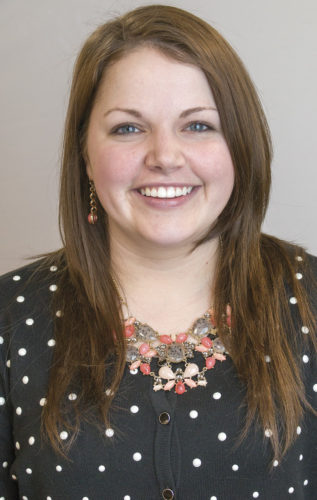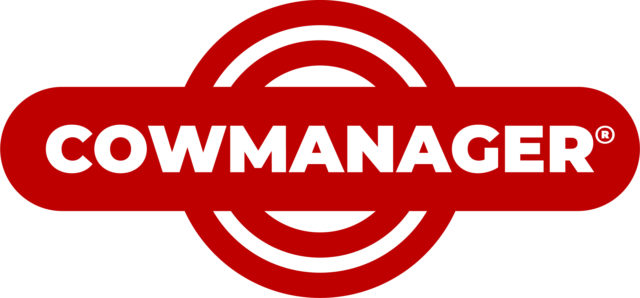Cassie Musser is at least the ninth generation working on her family’s farm in Enon Valley, Pennsylvania, which was first established through a Revolutionary War grant. Today, Den Be Farm is home to a milking herd of about 160 Holsteins, Guernseys and Jerseys.
Cassie grew up helping on the farm and was involved in a variety of agricultural activities.
Her father, Dennis, got her involved in tractor pulling. Her mother, Betsy, was by her side for many dairy-related activities, including showing, judging and promotion.
“I’m a cow nut,” Cassie says. “We both are.”
Pursuing further education
Like many high school graduates, Cassie wasn’t immediately sure what career path she wanted to pursue after finishing high school in 2011.
“My parents had really encouraged me to think about a business degree,” Cassie says.
“It was a starting point,” Betsy says. “She could go a lot of different ways with a degree like that. But we knew we wanted her to do some kind of further education.”
Cassie chose a community college close to home to complete an associate’s degree in business management. She began taking a larger role in the computer work, taking over data entry into PCDart.
She also entered into AgChoice Farm Credit’s AgBiz Masters program, where participants earn credits for participating in educational seminars and modules. Upon completion of the program, participants can earn a discount from the interest rate of an agricultural loan.
“Between the degree and participating in the program, I’ve really gained insights on the financials of running a business,” Cassie says.
Trial by fire
As Cassie was working on her degree, a family predicament required her to split her focus. Dennis required unexpected major heart surgery.
“He was laid up from April to August that year,” Betsy says. “In June, he was allowed to slowly start doing things.”
During that time, Betsy and Cassie worked closely together to keep the farm running.
“I’d do morning chores, some field work, go to classes and then come back for evening chores,” Cassie says.
Though the family credits the service of good friends and neighbors who helped get them through that year, the family had no other full-time employees besides Cassie and Betsy.
“We know that the two of us can work together under tough circumstances,” Betsy says. “We’d work all day in the field and barn and then start on projects in the house. We’re more productive under pressure.”
Getting tough
With Dennis recovering, Betsy and Cassie were often the ones dealing with consultants and salespeople. They live in an area with a large Amish and Mennonite population, and so newcomers to the farm aren’t always familiar with the large role the ladies have.
“Sometimes I had to get firm with [salespeople],” Betsy says. “I faced that more in my younger days than recently. But all three of us know what’s going on around here. When Dennis was present for those types of discussions, it was really nice to hear him say, ‘My wife is 50 percent of this operation. Ask her.’”
Cassie also had a strategy for urging industry reps to take her seriously.
“I’d say, ‘I can tell you how it goes here,’” Cassie says. “If that didn’t work, I’d say, ‘Well, this is what [my parents] told me to tell you.”
Like mother, like daughter
Cassie is quick to recognize many characteristics she has inherited from her mother, including that fighting spirit.
“I’m a mini-Betsy,” laughs Cassie.
Both of Betsy’s grandmothers farmed with their husbands. That had a huge impact on the way Betsy grew up and how she has raised and encouraged Cassie. Betsy can point toward several other dairywomen who have been a role model to both her and her daughter. Many of those connections were made through the All-American Dairy Show.
“Look at how many women it takes to run that show,” Betsy says. “Even the [off-the-farm] working moms who are taking days off work to be at the show and help their kids.”
In addition to showing cows throughout the week, Betsy and Cassie help with show ring decorations and organize the supreme pageant at the conclusion of the event.
All of that togetherness has helped the two women develop a shorthand in their conversation.
“Sometimes we talk in circles,” laughs Betsy.
“Yeah, people have trouble following our train of thought, but we usually end up right back what we started talking about in the first place,” Cassie adds.
Future transition
With Dennis back in farming condition, each member of the family has carved out their niches on the operation. Dennis takes care of the feeding and fieldwork. Betsy focuses on breeding, maternity pen and calves. Cassie has found a passion in recordkeeping and is in the parlor for most milkings.
While Cassie is not yet transitioning into ownership of the operation, the family is talking through the steps.
“Nothing is going to be handed to her,” Betsy says. “She has to earn her stripes.”
Cassie does currently own about 20 cows. If she decides to take over the farm, the family will likely set it up so that Cassie purchases an increasing percentage of the herd.
“A lot of times the next generation leaves because the first generation won’t let go,” Betsy says. “We don’t want to see that happen. We want to allow a time period to make sure this is a good fit and give her the tools she needs to succeed.” PD
PHOTO: Cassie Musser (left) says she has had a host of dairywomen to look up to, especially her mother Betsy (right). Photo by Emily Caldwell.

-
Emily Caldwell
- Editor
- Progressive Publishing
- Email Emily Caldwell






